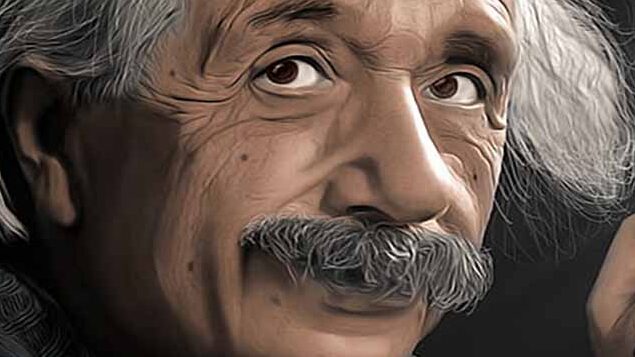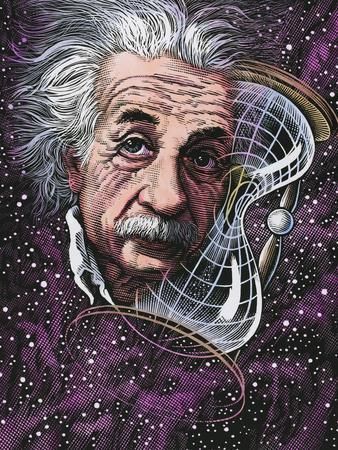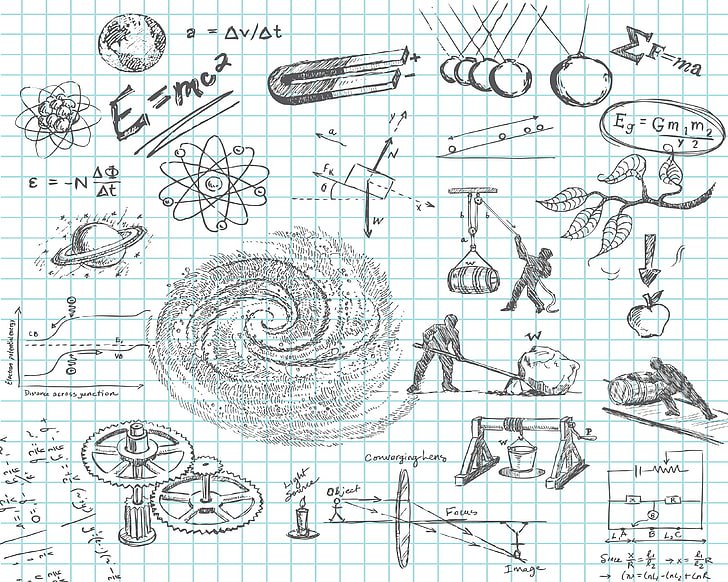Albert Einstein
Albert Einstein, the illustrious physicist hailing from Germany, stands as a transformative force in the annals of modern physics. His legacy is eternally intertwined with the revolutionary theory of relativity, featuring the iconic mass-energy equivalence equation, E=mc², a singular formula that dismantled the boundaries of scientific understanding. This profound work catapulted Einstein into the stratosphere of scientific acclaim, culminating in the 1921 Nobel Prize in Physics. His accolade, notably for contributions to the photoelectric effect, carved new pathways in quantum theory, reinforcing his status as a luminary.
Beyond the laboratory and the abstractions of science, Einstein’s influence resonated through the corridors of the 20th century, etching his name into the annals of iconic figures. His journey commenced in the idyllic town of Ulm, Germany, in the year 1879, a time when the cosmos itself seemed poised for revolutionary discoveries.
His intellectual odyssey began at the Swiss Federal Polytechnic School, where the young Einstein diligently pursued his studies, ultimately graduating in physics in the pivotal year of 1900. A mere technical assistant he may have been, but his insatiable curiosity and relentless pursuit of the mysteries of the universe led to a torrent of groundbreaking papers in 1905, papers that would become the bedrock of a new scientific era.
These papers, brimming with profundity, not only reshaped the cosmos but redefined human understanding. Concepts of space, time, light, and gravity were deconstructed and rebuilt in ways that the world had never seen before. Einstein, the intellectual savant, unleashed a symphony of ideas that would echo through the corridors of science for generations to come.
Einstein’s academic voyage found its crescendo in a professorship at the University of Zürich in 1909. With that, he solidified his place among the pantheon of scientific luminaries. His journey, like a comet across the firmament, continued its meteoric ascent to the Prussian Academy of Sciences in Berlin, a station of profound scientific prestige. There, Einstein’s brilliance shone brilliantly, illuminating the way for others to follow.
Einstein, However, even the brightest stars can face the tempests of history. In the year 1933, as the shadow of Hitler’s ascent loomed, Einstein sought refuge on distant shores, a journey that would forever alter the course of his life. The United States beckoned as a sanctuary, and it was at the Institute for Advanced Study in the idyllic environs of Princeton, New Jersey, that Einstein’s indomitable intellect continued to blaze a trail through the cosmos of scientific thought.
As time unfurled its ceaseless march, Einstein’s life met its conclusion in the quiet streets of Princeton in the year 1955. Yet, the echoes of his brilliance continue to reverberate through the annals of science and society. Einstein’s legacy transcends the lab, the classroom, and the ivory towers of academia. He emerged as a beacon of hope in a world torn asunder by conflicts and divisions. With unwavering dedication, he championed world peace through the World Government Movement, a clarion call for unity in a fractured world. He actively fought against the shackles of racism and discrimination, carving a path toward a more equitable society. Albert Einstein, the embodiment of scientific and social progress
FAMOUS QUOTES BY ALBERT EINSTEIN

“Two things are infinite: the universe and human stupidity; and I’m not sure about the universe.”
― Albert Einstein
“There are only two ways to live your life. One is as though nothing is a miracle. The other is as though everything is a miracle.”
“I am enough of an artist to draw freely upon my imagination. Imagination is more important than knowledge. Knowledge is limited. Imagination encircles the world.”
“If you can’t explain it to a six-year-old, you don’t understand it yourself.”
― Albert Einstein
“If you want your children to be intelligent, read them fairy tales. If you want them to be more intelligent, read them more fairy tales.”
“Logic will get you from A to Z; imagination will get you everywhere.”
― Albert Einstein
“Life is like riding a bicycle. To keep your balance, you must keep moving.”

“Anyone who has never made a mistake has never tried anything new.”
“I speak to everyone in the same way, whether he is the garbage man or the president of the university.”
― Albert Einstein
“Never memorize something that you can look up.”
“When you are courting a nice girl an hour seems like a second. When you sit on a red-hot cinder a second seems like an hour. That’s relativity.”
― Albert Einstein
“A clever person solves a problem. A wise person avoids it.”
“Science without religion is lame, religion without science is blind.”
“Any fool can know. The point is to understand.”
“Reality is merely an illusion, albeit a very persistent one.”
― Albert Einstein
“If we knew what it was, we were doing, it would not be called research, would it?”
“I have no special talents. I am only passionately curious.”
-Albert Einstein

“A human being is a part of the whole called by us universe, a part limited in time and space. He experiences himself, his thoughts and feelings as something separated from the rest, a kind of optical delusion of his consciousness. This delusion is a kind of prison for us, restricting us to our personal desires and to affection for a few persons nearest to us. Our task must be to free ourselves from this prison by widening our circle of compassion to embrace all living creatures and the whole of nature in its beauty.”
“Try not to become a man of success. Rather become a man of value.”
“The important thing is not to stop questioning. Curiosity has its own reason for existence. One cannot help but be in awe when he contemplates the mysteries of eternity, of life, of the marvelous structure of reality. It is enough if one tries merely to comprehend a little of this mystery each day.
—”Old Man’s Advice to Youth: ‘Never Lose a Holy Curiosity.'” LIFE Magazine (2 May 1955) p. 64”
“The world as we have created it is a process of our thinking. It cannot be changed without changing our thinking.”
“Once you can accept the universe as matter expanding into nothing that is something, wearing stripes with plaid comes easy.”
― Albert Einstein
“The most beautiful experience we can have is the mysterious. It is the fundamental emotion that stands at the cradle of true art and true science.”
t with what weapons World War III will be fought, but World War IV will be fought with sticks and stones.”
“If I were not a physicist, I would probably be a musician. I often think in music. I live my daydreams in music. I see my life in terms of music.”
“You never fail until you stop trying.”
“Great spirits have always encountered violent opposition from mediocre minds.”
“The measure of intelligence is the ability to change.”
“It is not that I’m so smart. But I stay with the questions much longer.”
“Gravitation is not responsible for people falling in love.”
― Albert Einstein




